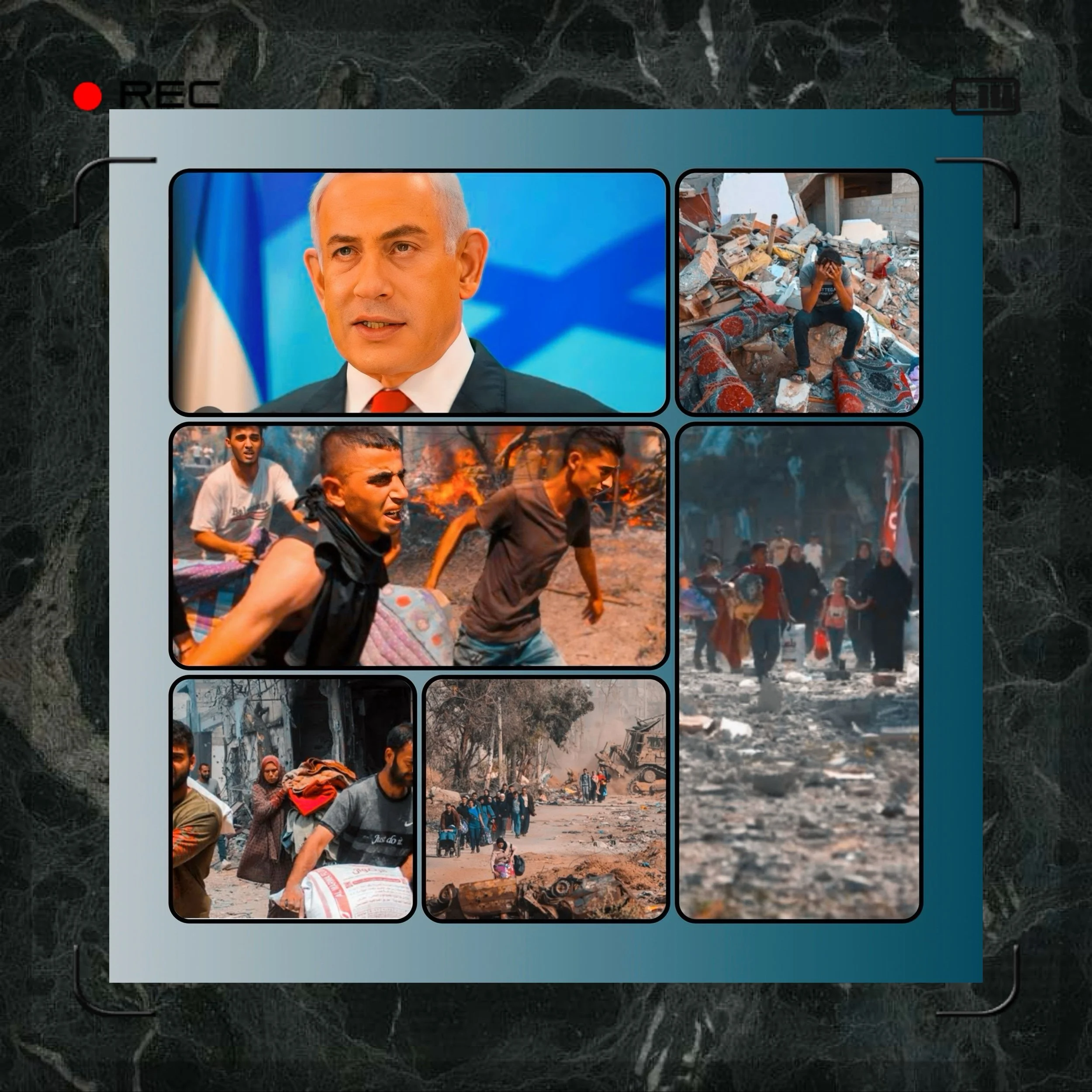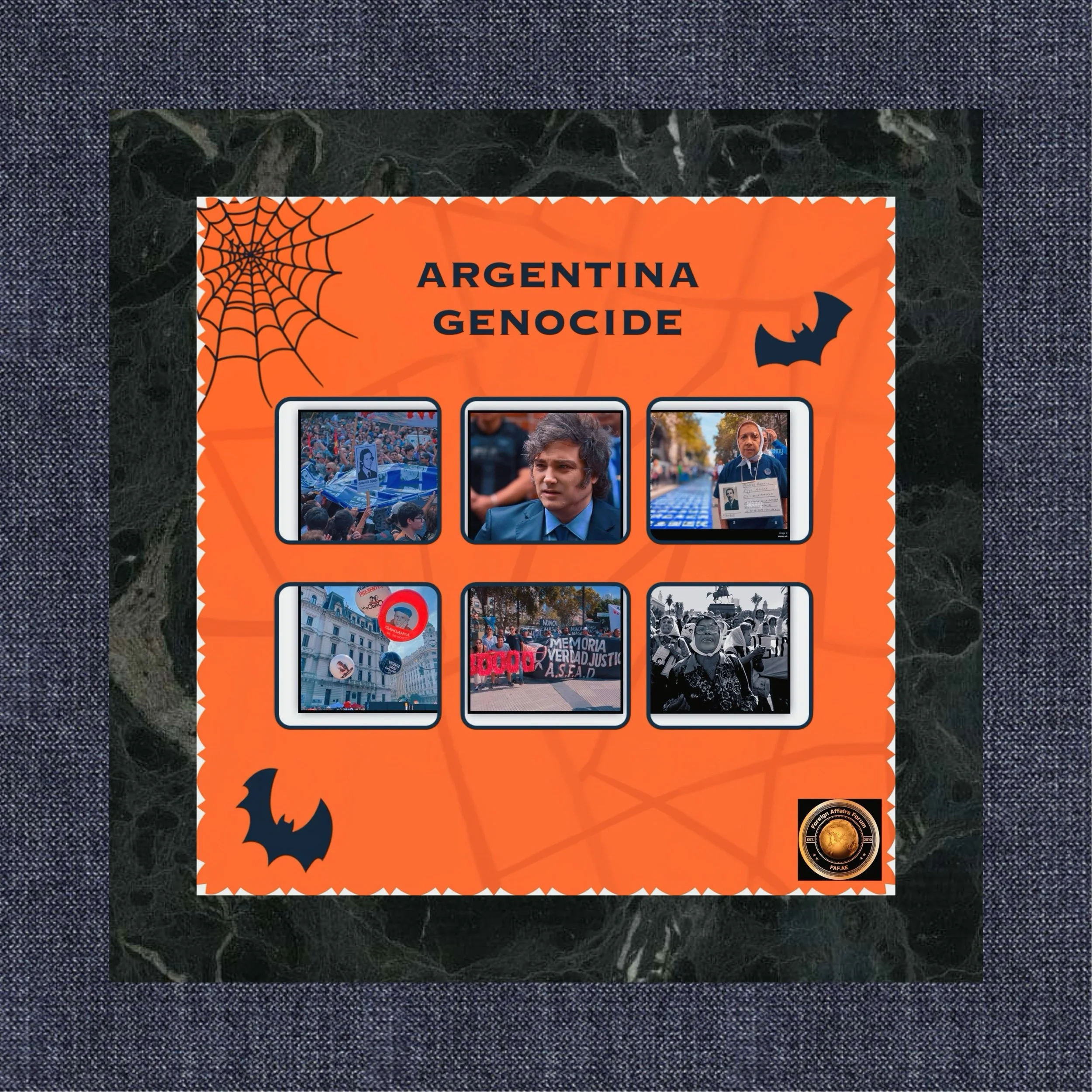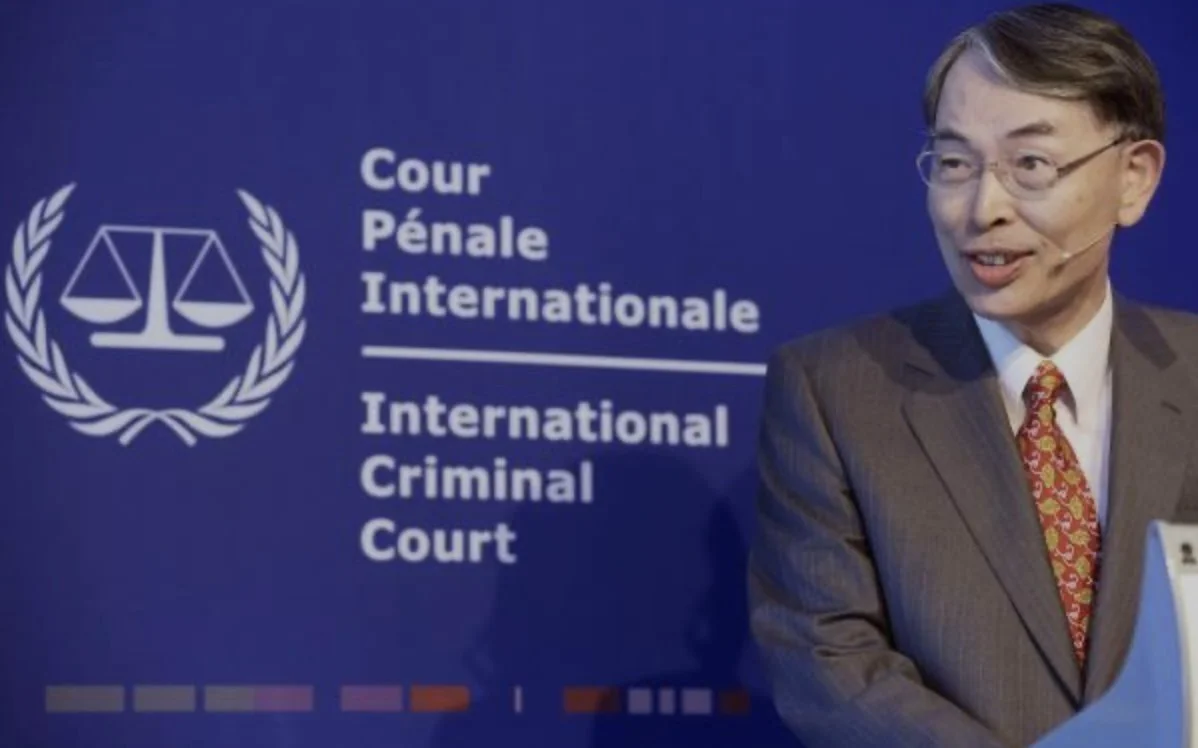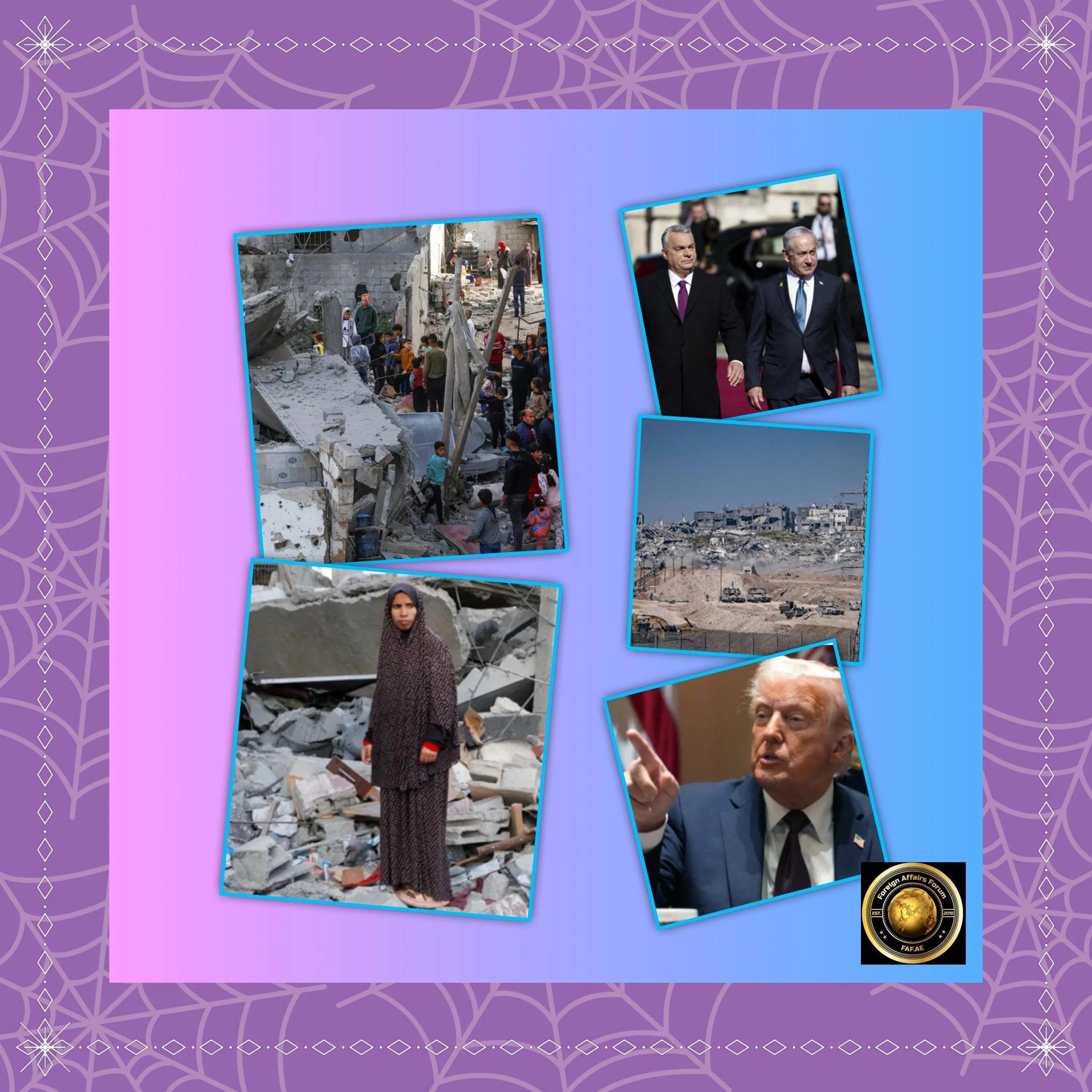The Last Chapter of the Genocide: Israel’s Final Stage Actions Against Palestinians in Gaza
Introduction
The current situation in Gaza represents what many observers and human rights organizations are describing as the final stage of a genocidal campaign.
With allegations of deliberate destruction of infrastructure, obstruction of humanitarian aid, and implementation of deportation policies, Palestinians in Gaza face increasingly dire circumstances with severely limited options.
The Allegations of Genocide
Multiple international bodies and human rights organizations have concluded that Israel’s actions in Gaza constitute genocide under international law.
In December 2024, Amnesty International published a landmark report titled “‘You Feel Like You Are Subhuman’: Israel’s Genocide Against Palestinians in Gaza,” which documented how Israel has “carried out acts prohibited under the Genocide Convention, with the specific intent to destroy Palestinians in Gaza”.
These acts include killings, causing serious bodily harm, and deliberately creating conditions calculated to bring about physical destruction.
Similarly, the Boston University School of Law’s International Human Rights Clinic concluded in early 2025 that “Israel has committed genocidal acts, namely killing, seriously harming, and inflicting conditions of life calculated, and intended to, bring about the physical destruction of Palestinians in Gaza”.
The legal basis for these allegations stems from the 1948 Genocide Convention, which defines genocide as acts committed with intent to destroy, in whole or in part, a national, ethnic, racial, or religious group.
In January 2024, the International Court of Justice (ICJ) issued a preliminary ruling in response to South Africa’s genocide case against Israel, finding that Palestinians had a “plausible right to be protected from genocide”.
The Final Push: Creating Uninhabitable Conditions
Recent developments suggest an intensification of Israel’s campaign in Gaza. As of March 2025, Israel has ordered the evacuation of northern Gaza, where desperate Palestinians had been camped amid the ruins of their homes.
The United Nations Relief and Works Agency for Palestine Refugees (UNRWA) reported in late March 2025 that it had only six days of flour supplies remaining.
The humanitarian situation is characterized by:
Severe shortages of food, medicine, shelter, clean water, and electricity
Collapse of essential infrastructure including hospitals, water treatment plants, and aid distribution centers
Ongoing bombardment resulting in hundreds of casualties, including many children
Less than half of emergency vehicles remaining operational due to fuel shortages
In the words of critics, Israel’s message has become unequivocal: “Gaza will be uninhabitable. Leave or die”.
Since Israel broke a recent ceasefire with heavy bombing, over 700 Palestinians were killed, including 200 children. In one 24-hour period alone, 400 Palestinians lost their lives.
Deportation Policies
Creating a Legal Framework for Expulsion
Alongside the military campaign, Israel has implemented legal mechanisms that facilitate the deportation of Palestinians.
In February 2023, Israel’s parliament passed a law making it easier to revoke citizenship and residency from Palestinians convicted of “acts of terror” who receive financial assistance from the Palestinian Authority.
For the first time, this law explicitly stipulated the deportation of Palestinians to the occupied territories.
More recently, in November 2024, Israel’s parliament passed another law allowing for the deportation of family members of Palestinian attackers to Gaza or other locations.
This collective punishment approach has been criticized as violating international law.
In February 2025, Israeli Communications Minister Shlomo Karhi explicitly referred to the removal of Palestinians from Gaza as a “deportation plan,” contradicting previous claims by Israeli officials that characterized such movements as “voluntary migration”.
This statement came amid discussions of a controversial proposal to resettle Gaza’s population in other nations.
International Response and Legal Developments
South Africa’s application to the ICJ argues that Israel’s actions “are genocidal in character because they are intended to bring about the destruction of a substantial part” of the Palestinians in Gaza.
The 84-page filing asks the court to declare that Israel has breached its obligations under the Genocide Convention and to order Israel to cease hostilities, offer reparations, and provide for reconstruction.
Human rights organizations have documented statements by senior Israeli officials that appear to call for or justify genocidal acts. Amnesty International identified 22 such statements providing “direct evidence of genocidal intent”.
This language has reportedly been echoed by Israeli soldiers on the ground, with verified audiovisual content showing calls to “erase” Gaza or make it uninhabitable.
The UN special rapporteur on human rights in the Occupied Palestinian Territories, Francesca Albanese, concluded in March 2024 that there were “reasonable grounds to believe that the threshold indicating the commission” of acts of genocide had been met.
Humanitarian Catastrophe and Ongoing Military Operations
The Palestinian health ministry has reported that at least 50,021 Palestinians have died and 113,274 have been injured since the current conflict began.
Recent military operations have seen intensified airstrikes throughout various regions of Gaza, with explosions reported in northern, central, and southern areas.
On March 22, 2025, an Israeli airstrike at a hospital in Gaza killed five people. The military has continued to issue evacuation directives, including for residents of the Tel Al-Sultan area in western Rafah, which Israeli troops subsequently surrounded to “dismantle terror infrastructure”.
Amnesty International’s research documented Israel’s imposition of “a complete blockade on Gaza,” resulting in the collapse of water, sanitation, food production, and healthcare systems.
The organization found that “between October 2023 and July 2024, Israel committed acts prohibited under the Genocide Convention and did so with the specific intent to destroy Palestinians in Gaza”.
The Historical Context of Displacement
The current crisis must be understood within the broader historical context of Palestinian displacement.
The Fourth Geneva Convention, adopted in 1949, prohibits mass deportation from occupied territories, and such forced displacement is considered a war crime under the Rome Statute of the International Criminal Court.
Previous instances of mass deportation include a December 1992 incident when 415 Palestinians from the Occupied Palestinian Territories were expelled to South Lebanon without prior notice.
Human Rights Watch has previously characterized Israeli policies as constituting apartheid and persecution, stating that “Israeli authorities methodically privilege Jewish Israelis and discriminate against Palestinians”.
Their 2021 report highlighted how “laws, policies, and statements by leading Israeli officials make plain that the objective of maintaining Jewish Israeli control over demographics, political power, and land has long guided government policy”.
Conclusion
Limited Options for Palestinians
As the situation in Gaza continues to deteriorate, Palestinians face increasingly limited options.
The deliberate destruction of infrastructure, obstruction of humanitarian aid, and implementation of deportation policies have created conditions where survival itself has become nearly impossible.
The evidence presented by numerous international organizations, legal bodies, and human rights groups supports the characterization of the current phase as “the last chapter of the genocide,” where Palestinians are being forced to choose between death or deportation.
The international community’s response to this crisis will be a defining moral test.
As humanitarian organizations continue to call for immediate action to prevent further loss of life and address the catastrophe, the fate of Palestinians in Gaza hangs in the balance, caught between the devastation of their homeland and the prospect of permanent exile.






